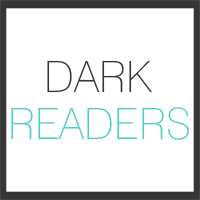Hello hello, today we hop on the Blackwing Blog Tour! This is a book I have been looking forward to since I first heard about it way back in January, and now here we are in July and I have this thing of beauty in my hands! Then we gave Ed a microphone at work during the fantasy Panel we hosted...do I regret giving it to him, yes, (ABSOLUTELY NOT), and from that I am even more excited to present you with today's post...Ladies and Gentlemen over to Ed
Blackwing: A feminist
novel
When I write, I have a target audience in my mind. She’s my
sister. My sister is in her thirties, very intelligent, a playwright, has a
moderate interest in fantasy only, and tends to enjoy fast paced, heart
pounding mysteries like The Da Vinci
Code. I choose her as my target audience because (a) she’s more mainstream
than diehard fantasy readers and I want to appeal to a broad audience, not just
genre fans, (b) I respect her opinions, and (c) we’ve been writing together
since we were kids.
Oh, and she’s a fervent feminist.
But then, so am I. And as Camilla said on Love Island very recently – “Shouldn’t
everyone be?”
(Note: Yes, I adore
Love Island. I watched 5 hours on Catchup last weekend)
Blackwing is a feminist book. It’s not a book about feminism, not in the slightest.
There are no themes of equality, no lessons taught by moralising mouth-piece
characters. And yet, it’s a book that will be enjoyed by feminists like me, and
also by those who don’t yet realise that they’re feminists.
Feminism is a term that really confuses people, so let’s
just define the other term that people get confused about:
An Equalitarian is
someone who believes that all people should be treated equally.
A Feminist is an
equalitarian who understands that the world does not currently allow this in
terms of its legislative, social, cultural and sexual expectations, norms and
behaviours, and that in order to achieve equality, positive action is needed to
alter perceptions and redress balance.
Blackwing’s female cast are diverse. We have Nenn, the hard
bitten, foul mouthed swordswoman, but I like to think that she’s also human in
her vulnerability and her loyalties. Then there’s Ezabeth: determined, possibly
mad, and far more powerful than most of the major cast. Lastly there’s Prince
Herono. ‘Princess’ has all the wrong connotations, so in Blackwing, women are princes. Elizabeth I of England was referred
to as a prince, so it’s not without real-world historical precedent.
What all of these women have in common, and what makes them
feminist characters, is not that they stroll around shouting “Women are equal
to men!” It’s that their gender is not limiting, and they are not treated in a
limiting way by the other characters. This was a very conscious decision that I
made when I started to write Blackwing. It’s a fantasy world; if I’m writing
about magical doomsday weapons, I don’t have to adhere to Victorian attitudes
towards sex and gender. My experience as a historical fencer adds to this. If
anyone ever tells you that women can’t fight with swords, go tell them to fight
with Kristine Konsmo, who beat all comers in the 2012 Swordfish competition
(regarded as the toughest swordsmanship competition in the world) with sword
and buckler. I had the pleasure to attend a seminar that she taught recently
and man, that woman can fight. My
experiences in swordsmanship are that gender has no impact on a person’s
ability, as physical strength is at best a minor factor. Our earliest
historical fencing treatise (dating around 1290-1320) features a female fighter.
We don’t need to apply our misplaced cultural prejudices to older societies.
(Top: Kristine Konsmo. Bottom: A folio from the I.33
fighting treatise)
On the other hand, I don’t think that gender neutral
societies should mean that we pretend that men and women are identical. It
would be wrong if I’d had Ezabeth – 5’0 tall and built like a twig – arm
wrestle and beat Galharrow, who’s 6’6 and weighs over 20 stone. Biologies are
different. It’s fine to accept that, provided that we don’t then type cast
every character into a gender/biologically defined role, as individual
character traits are more defining than the base building blocks of our DNA.
Not all women want children, but lots do, and the early mother/child bond tends
to be – not always, but often – different to the early father/child bond.
Nenn plays to a traditionally more masculine roll – she’s
all leathers and blades – whilst Ezabeth is far more feminine, veiled and wears
dresses. But then, whilst Galharrow is a man’s man, Ezabeth’s brother Dantry
could be seen as effeminate. But masculine or feminine, all of the characters
bring it when it’s called on, because that’s who they are. They aren’t just a
set of genitals and cultural expectations. Some characters switched gender
during the writing, and all it took was a change of pronouns. It didn’t change
the story at all, because unless you’re specifically tackling gender issues,
why would it?
Whilst I was writing Blackwing, an interesting thing then
occurred. The characters began to talk in ways that I’d not intended. My
imagined society took on different values. Sexuality became a non-issue. The
way that characters talk about sex
changed, their expectation of what people should aspire to changed. It has, for
me, become an exploration of a gender neutral society.
And there you have it! Check out the rest of the stops on the Blog tour, which you can see below, and you can get your hands on Blackwing because it is OUT NOW!
















1 comments:
I totes need to read this one
Hi btw
Post a Comment